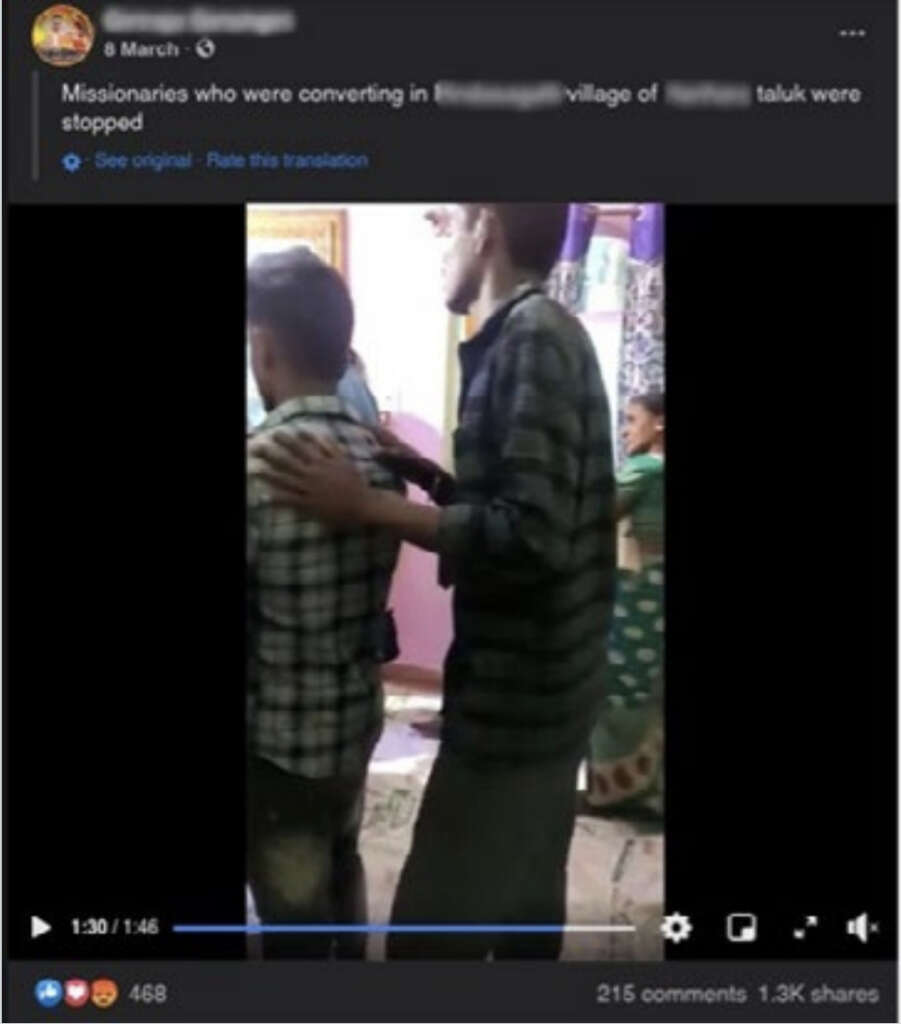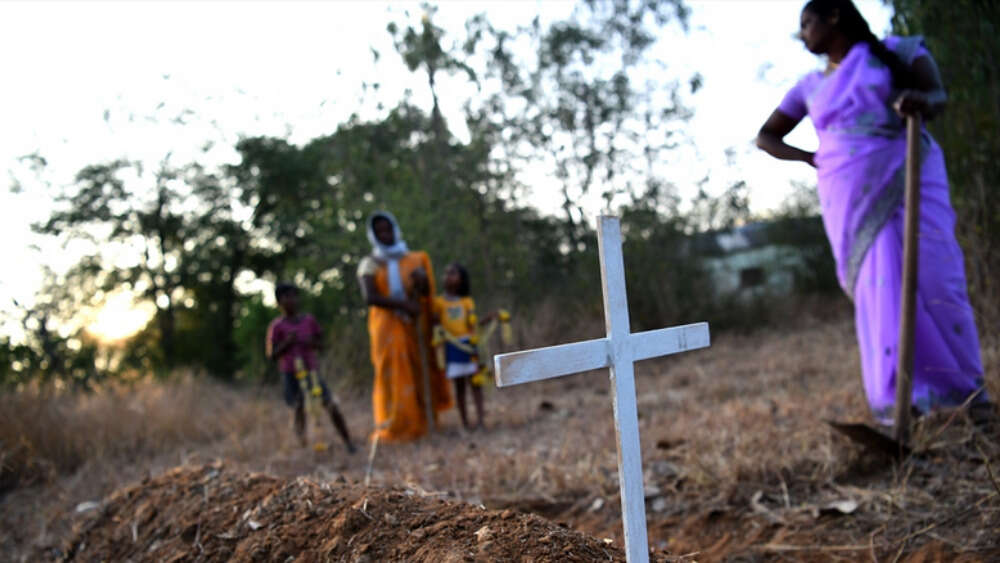Social media plays a key role in the persecution of India’s Christians, say researchers, and the international community, financial institutions, and technology companies all have an important role to play in bringing it to an end.
Their work – detailed in the new Open Doors’ Destructive Lies report – shows how social media functions within a wider, state-sanctioned cycle of prejudice, discrimination, and violence directed towards Indian Christians and Muslims.
Indian government revokes licence for Mother Teresa's charities in India on Christmas Day
India’s brutal campaign to persecute Christians and Muslims exposed in shocking report
Sharp rise in religious persecution in India shocks experts
Indian government gives medical supplies to Hindus over Christians
One way this occurs is when vigilante groups post their violent attacks on Christians or Muslims in social media groups, where they are, in turn, lauded as protectors of Hinduism. Then, as news of the attacks and the footage itself spreads, others who are part of religious minorities are afraid to practise their faith.
These attacks also reinforce the (often legitimate) belief that the police will not protect religious minorities.
Finally, mainstream media institutions feature reports on the attacks – generally not condemning them or featuring the stories of victims – taking the opportunity to ingratiate themselves to the Hindutva and Hindu Far-Right fraternity.

Hindu vigilantes in Karnataka disrupt Christian prayer meetings accusing pastors of conversion, share the video on social media, further fueling discriminatory and inciting speech in the comments section. Source: Destructive Lies report, Appendix 2.
Another way social media is used is to spread prejudiced propaganda about Christians and Muslims.
“We have gathered evidence to suggest that while numbers of Christians and Muslims have participated whole-heartedly in relief work both in separate organizations and alongside some Hindu and Sikh peers, the volume and types of disinformation against these communities continue to rise and multiply,” the Destructive Lies report says.
“Images and tropes involving the denigration of Muslims and Christians, particularly a refusal to receive blood from transfusions given by them, refusal to be treated by Muslim doctors, a repeated connection of them and their faith habits of prayer and worship with the spread of the virus, accusations that they deliberately infect Hindus and more, appear repeatedly on mainstream and social media platforms and apps, and only a small number of these are ever retracted or taken down.
“Meanwhile, the vigilante mob lynchings and attacks, state harassment, attempts to drive Muslims and Christians from their land and their homes, and censorship have not lessened, but are rather metamorphosing in new and disturbing ways.”
In the transcript of an interview obtained by Eternity, one of the report’s authors (who has chosen to remain anonymous for safety reasons) said the problem of religious minorities’ persecution in India was “a deep deterioration and corruption in the official state machinery.” (Eternity has reported on other aspects of the report here and here.)
Yet the researcher highlighted “one of the more urgent” recommendations made in the report – eliminating the role of social media.
How? Researchers say technology companies and people with power within social media networks – both groups that are clearly independent of government control – need to step up and clamp down on posts that target religious minorities.
More specifically, Destructive Lies outlines 7 recommendations for the international community and international financial organisations, along with a further 8 recommendations for social media corporations and media outlets.
These include training human moderators and AI to identify content and groups that target religious minorities and ensure its prompt removal.
See pages 12 and 13 of Destructive Lies for the full list of recommendations.
Email This Story
Why not send this to a friend?



